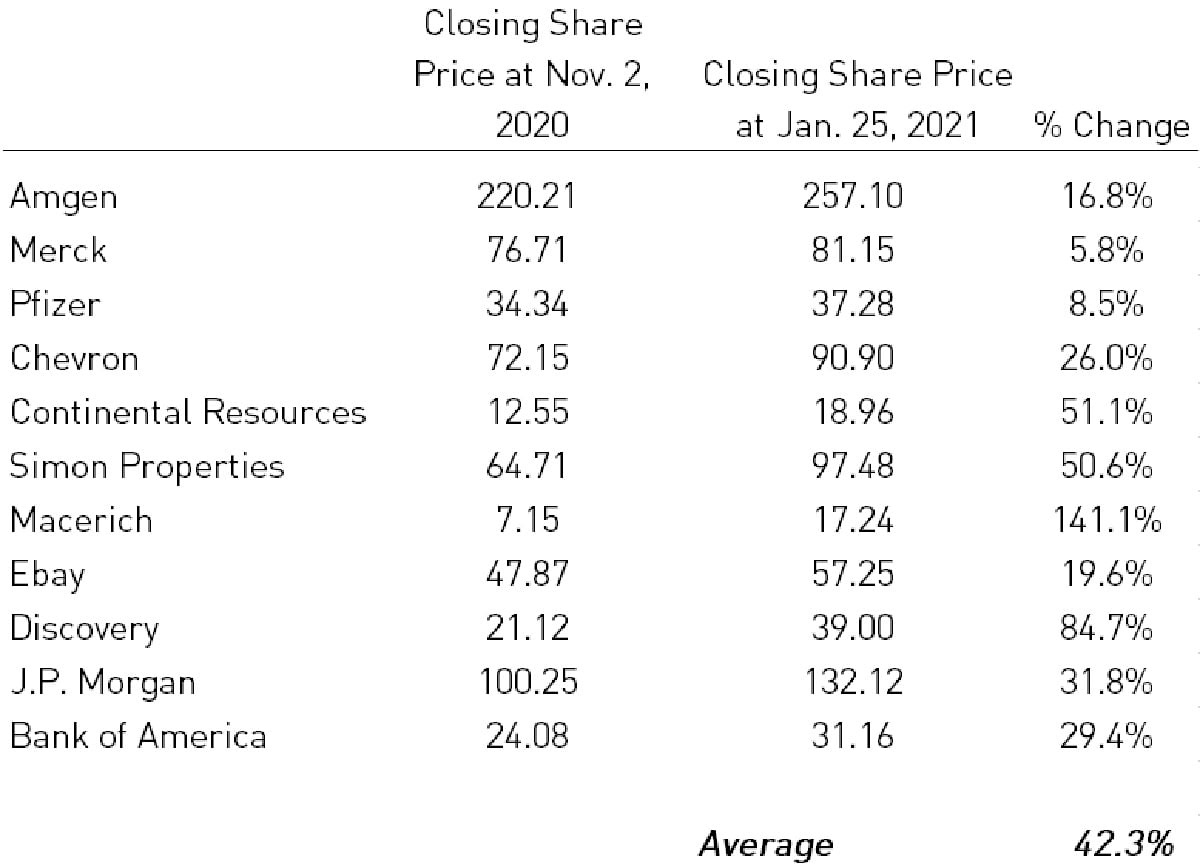There have been a small number of consistent alpha-creating axioms in the U.S. stock market over time. Value beat growth over long time frames, tech stocks hit bottom in the summer and crowded trades separate you from your money, to name a few. None has been more consistent in my 40 years in the investment business than “the January effect.”
Q4 2020 hedge fund letters, conferences and more
What Is The January Effect
The January effect is very simple and logical. Stocks which perform poorly in the first ten months of the year get sold very heavily between October 15th and December 15th. Funds sell into an October/November fiscal year and accountants guide individuals to dump temporary losers to shelter existing gains and/or ordinary income. If you lost $10,000 on a short-term position, you would save 37% or $3,700 in tax in a match with a short-term gain of $10,000 in the highest marginal tax bracket. It would save $2,350 against $10,000 in long-term gains.
The weirdest thing happened in 2020. Virtually none of the major print or video media outlets wrote an article or did an exposé about the January effect. We didn’t see one in The Wall Street Journal or Barron’s or on CNBC or Bloomberg or new up-and-comers like Yahoo Finance. Nobody thought the topic was worthy. So, what did this cause? January 2021 is seeing the biggest January effect that we have ever seen, and it is having a huge impact on early year equity performance.
To get a real-world example, we will use the list of our stocks we wrote about in early November in a piece about cherry picking names. We said that we had about 11 names which looked especially cheap, and in most cases, they had declined substantially from early in the year. The list looked like this, including the prices on November 1, 2020 and at the close on January 25, 2021:
Source: Bloomberg.
The Correlation Between Bad And Good Performance
There has been a direct correlation between how poorly they had done from January 1, 2020 to November 1, 2020 to how well they have done since. In the absence of normal media and conversation, most investors seem astounded that something as historically reliable as the January effect has been so powerful.
Some of the reasons it was ignored are fun to think about.
- Why consider an alpha generator from history when money-losing momentum stocks and crowded tech stock positions have ignored history and made people temporary riches?
- The S&P 500 has outperformed any and all historical alpha creating strategies in recent times.
- The price of money has been nearly free, and the game appeared to have changed forever.
- Millennial newbie investors believe they are going to be the first group in history that uses their exercise equipment in their 40s and the first group in history which deserves to make a great deal of money on stocks doing something historically stupid.
Charlie Munger says, “All I want to know is where I'm going to die, so I'll never go there!” We believe investors are going to see most of their money die in revenue growth stories, SPACs and over-priced growth stocks. We also believe the S&P 500 Index is loaded with over-priced common stocks and will cause institutional and retiree ownership interest to die in the next decade. Beware of stock market failure and don’t go there!
Warm regards,
William Smead
The information contained in this missive represents Smead Capital Management's opinions and should not be construed as personalized or individualized investment advice and are subject to change. Past performance is no guarantee of future results. Bill Smead, CIO wrote this article. It should not be assumed that investing in any securities mentioned above will or will not be profitable. Portfolio composition is subject to change at any time and references to specific securities, industries and sectors in this letter are not recommendations to purchase or sell any particular security. Current and future portfolio holdings are subject to risk. In preparing this document, SCM has relied upon and assumed, without independent verification, the accuracy and completeness of all information available from public sources. A list of all recommendations made by Smead Capital Management within the past twelve-month period is available upon request.
©2021 Smead Capital Management, Inc. All rights reserved.
This Missive and others are available at www.smeadcap.com.






